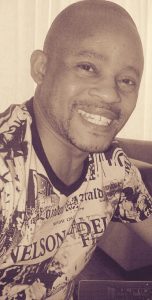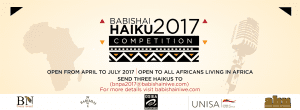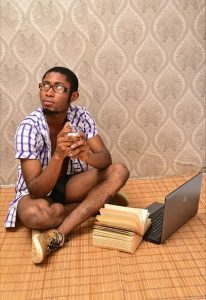Babishai Poetry has garnered interest in the African Haiku, or as Adjei Agyei-Baah, co-founder of the Africa Haiku Network coins it, Afriku.
The condensation of an African landscape in three lines is an extraordinary gift. Launching the inaugural Babishai Haiku prize in 2016 opened a treasure chest of unlikely imagery and meeting of immeasurable talent. This year 2017, we’re expanding our partnership with University of South Africa (UNISA). Professor Maithufi Sopelekae shares his experience with the haiku and the importance of this partnership.
- Why is it important for UNISA to engage in the African Haiku?
Sope: Unisa prides itself as an ‘African University in the service of humanity’. Among others, this means sharing resources, plights and achievements with the continent and continually searching together for answers and solutions. However, this university’s network across the African continent is not yet a vast and aggressive as desired. I thus see this Association’s privileging of African epistemologies (as in the African Haiku) to be a convenient platform from which the above ideals can be pursued.
- How do you feel our African oral structures can be used to raise more awareness on the African Haiku?
- Sope: I am inclined to believe that the rhythm of some (if not most) of the African aphorisms, idioms and proverbs lend themselves to relatively easy transcriptions into haikus. These genres are condensed, loaded in dialectical arguments and are highly rhythmic at times. I also find those that I am familiar with to be judicious in how they deploy metaphors to articulate the thesis (synthesis) such as it is comparable to that of the Haiku.
- How would you define a good haiku?
Sope: Aside from meeting the formal properties that we associate with haiku, I think it should not be contrived. In other words, it should arise organically from the process of mature observation and thinking. I also think that it must be rooted in people’s lore or oral storytelling.
- fogbound day…
everyone suffers
myopia
Above is one of the Babishai 2016 winning haikus, written by BlessmondAyinbire. How would you describe it?
Sope: I am impressed by the ability of the author to squeeze an argument within three lines, respectively comprising five, seven and three syllables. The thesis is introduced in the first line in the image or metaphor of a ‘fogbound day’ which stands for an anticipation for a day that will be clear or filled with hope. However, this sense of optimism is subtly undermined in the second line in which, in contrast to the first line’s sense of optimism, the speaker remarks that behind hopefulness is a sense of suffering – perhaps denialism. The concluding line, which describes the malady remarked uponin the second line as ‘myopia’ or near-sightedness,carries the synthesis. Ironically in thisdepiction, the idea of ‘suffering’ is shown to be mediated in a fragile but profound perspective to life. The poem thus returns us to its opening, main metaphor and paradox of a ‘fog-bound day’. Finally, instead of dismissing those who look forward to a clear day, the speaker acknowledges the shock absorbing mechanism or therapy that sustains them.
- What do you feel about haikus in non-English?
Sope: I am not familiar with any Haiku outside of those published in English. As a matter of fact, I have never heard of any Haiku composed in a South African Black language. I am however committed to finding out. My hunch is that some of the black idioms and aphorisms will easily lend themselves to haikus in transcription.
- South Africa has actively engaged in protests against the current leadership. ( 2017) What are your thoughts on protest art?
Sope: I feel that this is indicative of vibrant democracy, high levels of civic awareness and a keen desire to avert the social, economical and political dilemmas such as they are commonin many post-colonial countries.
Protest art: in South Africa, protest art has a long history of association with the rise and articulations of black politics. However, this kind of art has yet to adequately engage with the politics of intersectionality. I find it interesting that this weakness continues to impoverish recent fine output such as that of AyandaMabulu (I refer to his portraits of rape) and Zapiro (see his banal and mechanistic sketches of Jacob Zuma).The fashionable #drama such as #FeesMustFall has been accused of being chauvinistic. We therefore await with baited breaths how protest art in South Africa will provide a critique of this phenomenon.
- In 2015 during our first Babishai poetry festival, we invited an environment expert to talk about how as artists we need to care for our environment. How do you think Art for social change can create positive impact?
Sope: I have always considered art to be a platform for social change. As a norm, many dictatorships attack people’s arts, because they emanate from people’s attempts to make meaning of physical space in their own spiritual and political terms. People’s arts do not care for extraneous and capitalistic intellectual property.
- What are the important current trends in African writing?
Sope: I think they are many. I mention a few: cosmopolitanism (re-defined as Afropolitanism), Afrofuturism, the ‘ordinary’, eco-critical, shamanism, etc.
Thank you
Twitter: @BNPoetryAward
Website : www.babishainiwe.com


